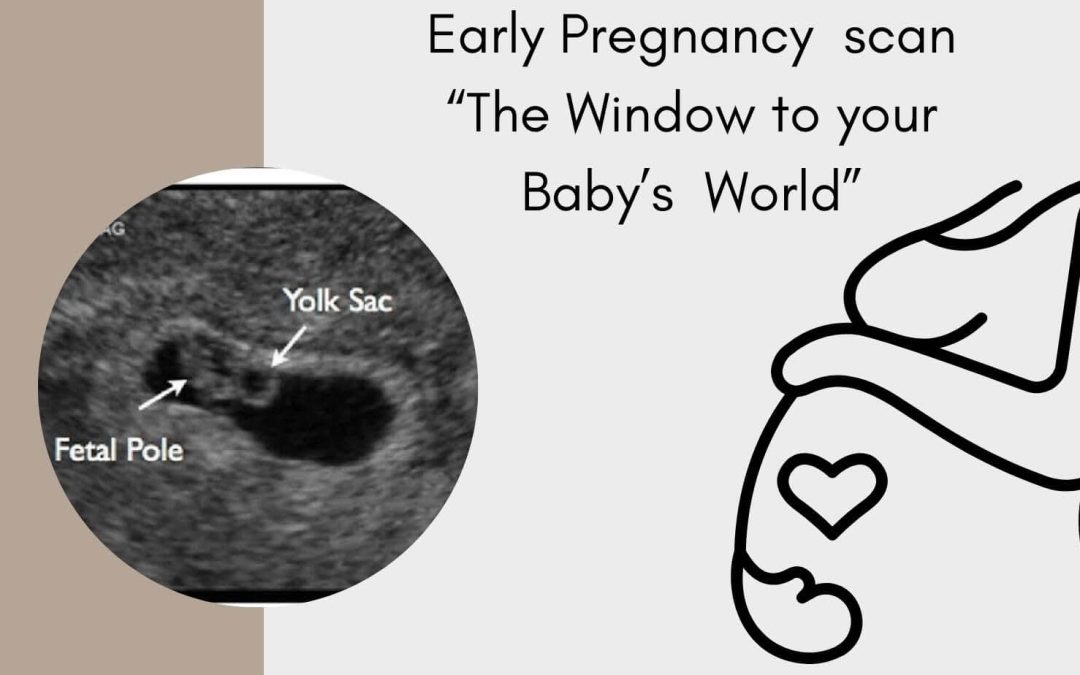Pregnancy is a uniquely special time, filled with excitement and joy.
The wonder of early pregnancy is often accompanied by new feelings, new experiences and above all, new questions.
Over all pregnancy is of 40 weeks time period .Week calculation starts from the first day of your last menstrual period day(LMP).
Pregnancy Is Divided In Three Trimester(3 months)
- 1st trimester (first three months upto 13 weeks)
- 2nd trimester ( 4 to 6 months -14 weeks to 26 weeks)
- 3rd trimester ( 7-9 months-27 weeks to 40 weeks)
When should I do the first ultrasound ?
- When period missed
- Urine pregnancy test can come positive
- A blood test(beta hcg) can diagnose pregnancy.
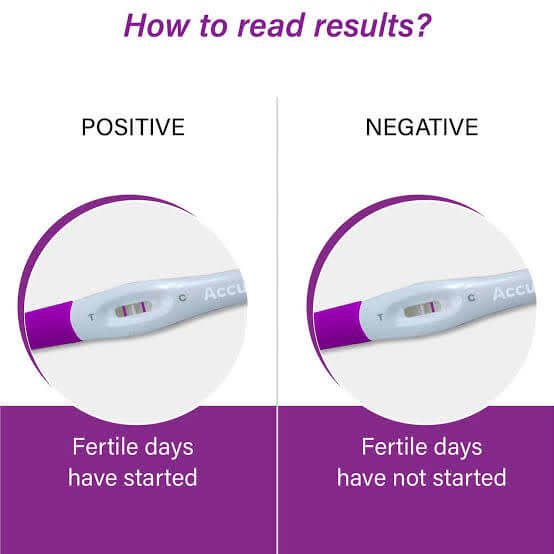
But Both Of these Tests Can Not Diagnose Healthy Intrauterine Or Extrauterine Pregnancy.
- So three weeks after ovulation (release of eggs) means at 5 weeks transvaginal ultrasound can rule out intrauterine pregnancy .
- 4 -5 weeks after ovulation ( at 6-7 weeks) transvaginal ultrasound can diagnose live intrauterine pregnancy or miscarriage or ectopic pregnancy or any abnormal pregnancy.
- After 6 weeks pregnancy grows faster.
- So if at 6-7 weeks heartbeats are normal and pregnancy corresponds to gestational age then there is less chance of miscarriage.
So in this blog you will find when to diagnose pregnancy and why early scan is necessary?
1. Confirming Pregnancy
This section elaborates on the emotional and practical aspects of confirming pregnancy through an early scan. It explains that the early scan provides the initial verification that a pregnancy has occurred, which can be a significant relief for expectant parents, especially those who have been trying to conceive. It emphasizes the emotional support this confirmation offers.
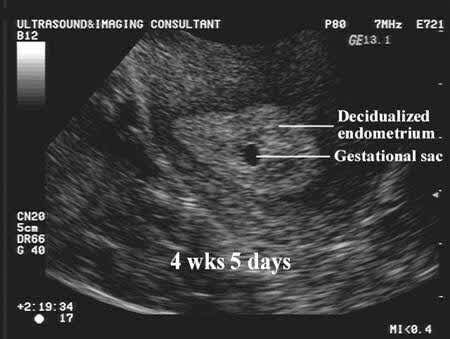
2. Estimating Gestational Age
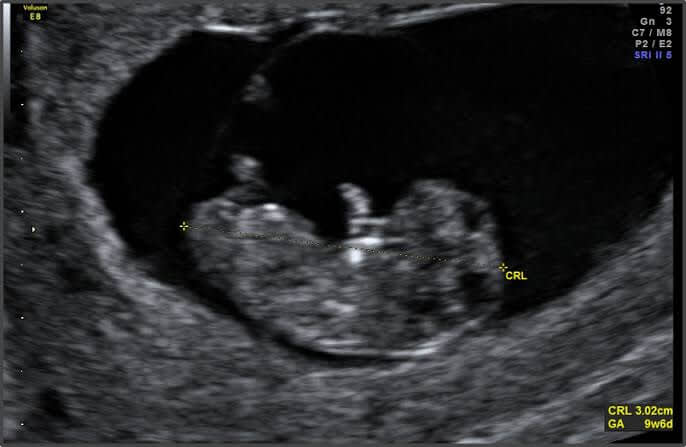
3. Estimating Due Date:
Here, the section expands on the importance of estimating the due date with precision. It discusses how due date accuracy is crucial for tracking the baby’s growth and development and ensuring that essential prenatal tests and screenings are scheduled at the right times
4. Identifying Multiple Pregnancies
In some cases, early scans can reveal the presence of multiple fetuses, which can significantly affect the course of the pregnancy and delivery plans. Identifying twins, triplets, or more early on ensures that healthcare providers can offer the best care for both the mother and babies.
5. Detecting Ectopic Pregnancy
Ectopic pregnancies occur when the fertilized egg implants outside the uterus, often in the fallopian tubes. These pregnancies can be life-threatening and require immediate medical attention. Early scans can help diagnose ectopic pregnancies, preventing complications and ensuring the safety of the mother.
6. Assessing Fetal Health
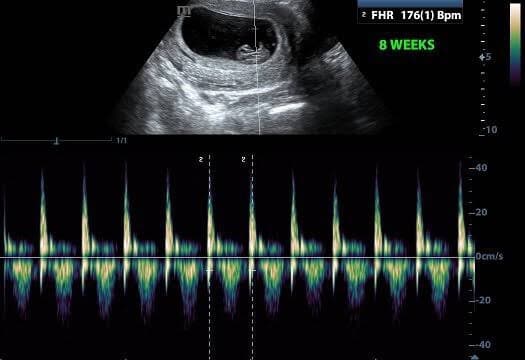
7. Monitoring High-Risk Pregnancies
For women with a history of high-risk pregnancies or specific medical conditions, early scans are even more crucial. They allow healthcare providers to closely monitor the pregnancy from the start and provide appropriate care, reducing the risk of complications.
8. Diagnosing Birth Defects
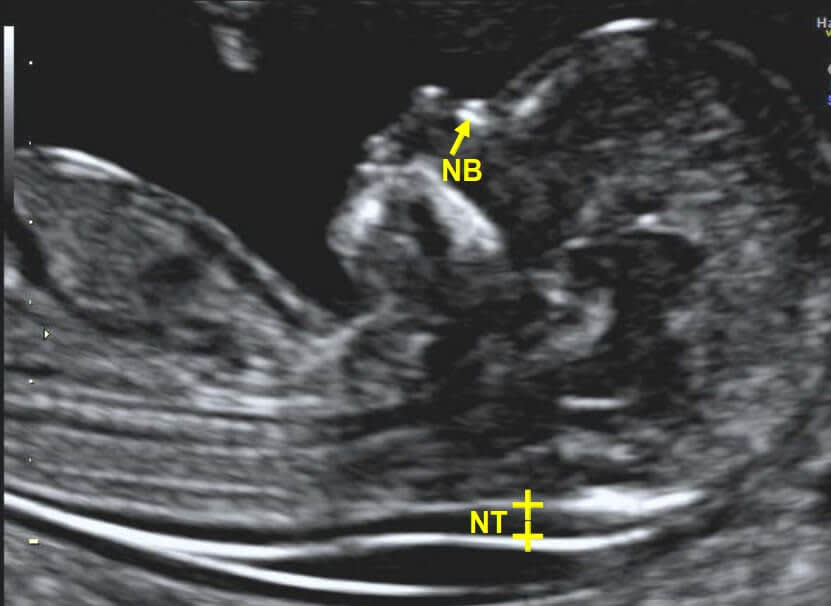
9. Offering Peace of Mind
Pregnancy can be a time of uncertainty, and early scans provide peace of mind. Seeing the baby’s heartbeat on an ultrasound screen or hearing it for the first time can be an emotional and comforting experience for expectant parents.
10. Assessing the Placenta
Early scans also help in assessing the position and health of the placenta. For some women, the placenta may be improperly located, which could lead to complications like placenta previa or placental abruption. Detecting these issues early allows for proper management and timely interventions.
11. Monitoring for Miscarriage Risk
Unfortunately, not all pregnancies progress smoothly. Some women may experience early signs of a potential miscarriage. Early scans can help identify issues like a blighted ovum or missed miscarriage, providing closure and enabling medical professionals to guide the patient through the necessary steps.
12. Verifying Uterine Abnormalities
Certain uterine abnormalities, such as fibroids or congenital malformations, can affect pregnancy. Early scans can help identify these issues, ensuring that healthcare providers tailor the prenatal care plan to accommodate the unique circumstances of each pregnancy.
13. Tracking Maternal Health
Pregnancy isn’t just about the baby; it’s also about the health and well-being of the mother. Early scans can detect conditions like ovarian cysts, uterine fibroids, and endometriosis that may impact the pregnancy or require management.
14. Providing Early Education and Support
Early scans offer an opportunity for expectant parents to connect with healthcare providers and receive essential information about prenatal care, nutrition, and lifestyle choices. They also offer a platform for discussing any concerns or questions regarding the pregnancy.
15. Personalizing Prenatal Care
Each pregnancy is unique, and early scans help customize prenatal care plans. Based on the findings from these scans, healthcare providers can adapt their approach, offer additional tests if necessary, and provide targeted guidance for a healthy pregnancy.
16. Identifying Genetic Disorders
Early scans can also include genetic testing or screenings like the non-invasive prenatal testing (NIPT). These tests can detect chromosomal abnormalities such as Down syndrome, providing parents with important information about their baby’s health early in the pregnancy.
17. Preparing for Specialized Care
In cases where early scans reveal potential complications or specific medical conditions, it allows healthcare providers to plan for specialized care or consult with experts in maternal-fetal medicine, ensuring the best possible outcome for both the mother and the baby.
18. Monitoring Fetal Growth
As the pregnancy progresses, additional scans can track fetal growth and development. These scans help ensure the baby is growing at a healthy rate and can identify growth restrictions or macrosomia (excessive fetal growth) that may necessitate adjustments in the care plan.
19. Managing Medications
Some women may require medication for pre-existing health conditions during pregnancy. Early scans help assess the safety of these medications and determine whether any adjustments are necessary to protect the baby’s well-being.
20. Assessing Amniotic Fluid Levels
The level of amniotic fluid is crucial for the baby’s growth and development. Early scans can help monitor amniotic fluid levels, ensuring that they are within the normal range. Low or high levels can indicate potential complications that require attention.
21. Planning for Delivery
Early scans provide valuable information for planning the delivery. They help healthcare providers determine whether a vaginal birth is safe or if a cesarean section may be necessary due to issues like the baby’s position or umbilical cord concerns.
22. Identifying Potential Complications
This part explores early scans’ role in identifying complications such as molar pregnancies and blighted ovum. It stresses that early detection allows for proper management and minimizes unnecessary distress for expectant parents
23. Providing Reassurance
This section delves into the emotional aspect of early pregnancy scans. It highlights how seeing the baby’s heartbeat or the developing form on the ultrasound screen provides emotional reassurance for parents. It discusses how this can be a profound bonding experience.
24. Early Intervention and Care Planning
Here, the section emphasizes the importance of early scans in facilitating early intervention and care planning in the event of complications or developmental concerns. It explains how early intervention can lead to better outcomes and reduce risks
25. Reducing Anxiety
This section acknowledges the common anxiety and worry that expectant parents may experience in the early stages of pregnancy. It discusses how an early pregnancy scan can provide peace of mind by offering concrete evidence of a progressing pregnancy
Conclusion
Early pregnancy scans are not just a routine part of prenatal care; they are a critical component of a healthy and safe pregnancy journey. These scans offer a multitude of benefits, from confirming pregnancy to detecting potential complications, providing peace of mind, and ensuring that both mother and baby receive the best care possible.
If you are pregnant or planning to conceive, don’t underestimate the importance of early pregnancy scans. They are your window into the health and development of your baby and a vital tool for safeguarding the well-being of both you and your little one as you embark on this incredible journey of motherhood.
Early pregnancy scans are a comprehensive tool for ensuring a healthy pregnancy. They go beyond confirming pregnancy and estimating due dates; they encompass a wide range of benefits, from identifying potential complications to personalizing care and ensuring both maternal and fetal health. Early scans empower expectant parents with knowledge, giving them the best chance for a successful and joyful pregnancy and birth experience.
We have experienced Fetal medicine experts at our Shukan Hospital and IVF Center with comprehensive knowledge. So If you’re pregnant or planning to be, remember to schedule early pregnancy scans as part of your prenatal care at Shukan Hospital and IVF Center . These scans are the first steps in a journey that will ultimately lead to the joy of welcoming a healthy, happy baby into the world.
Author Bio
Dr. Hardik Savaliya
He is a highly dedicated and empathetic gynecologist and infertility specialist who has been serving patients with utmost care and professionalism for over 5 years. His approach to patient care is holistic, ensuring that each woman receives not just medical treatment, but also emotional support throughout her journey. His primary focus is on empowering women with knowledge about their health and providing them with the best possible solutions tailored to their individual needs.
Having completed his MBBS and DGO, he possesses in-depth knowledge and expertise in the field of gynecology and obstetrics. He is well-versed in the latest advancements in infertility treatments and gynecological care, including IVF, IUI, and other assisted reproductive technologies. His success in treating couples with infertility issues is a testament to his skill and dedication.
He is also recognized for his competence in managing high-risk pregnancies, ensuring the safety and well-being of both the mother and the baby. His surgical expertise, particularly in minimally invasive procedures, allows him to offer effective solutions with quicker recovery times.
Throughout his career, he has been committed to continuous learning and professional development. This dedication is reflected in his various certifications and memberships with prestigious organizations like FOGSI. Patients appreciate his approachable nature, detailed consultations, and the personalized care plans he offers, which make them feel at ease during what can often be a stressful time.
At Shukan Hospital & IVF Centre, He is known not just for his clinical expertise but also for his compassionate bedside manner, making him a trusted and respected figure in the field of gynecology and infertility.

